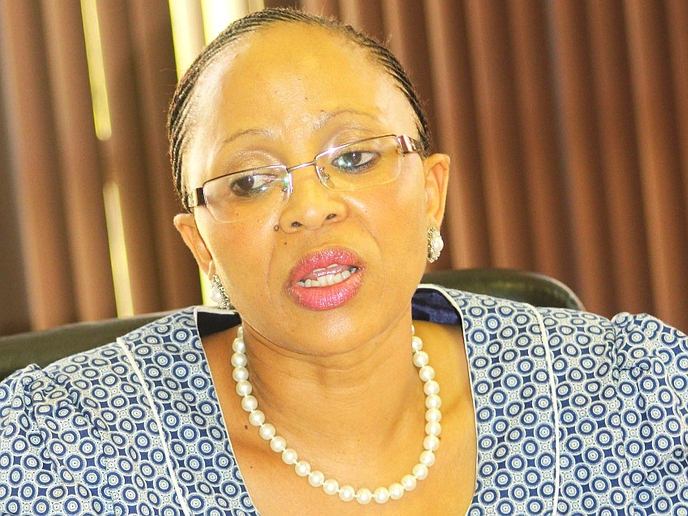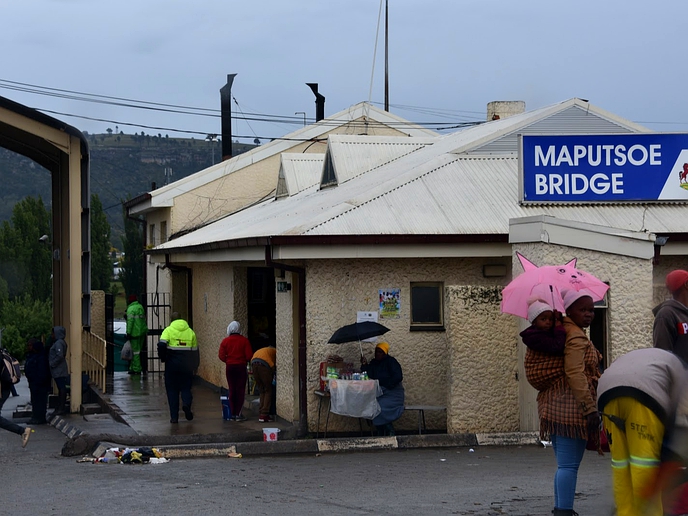Small, Medium and Micro Enterprises (SMMEs) in the country are set to benefit from the newly introduced mobile banking feature by the Lesotho Post Bank. The feature, which offers instant loans to users from as little as M10.00, is set to help mainly small vendors to access finances for their stocks.
business
May 16, 2019
METRO REPORTER
3 min read
PostBank launches small loans mobile feature

The bank said it has spent more than M20 million to put the product together and will be hoping to make returns through its services, while at the same time easing financial access for the most disadvantaged members of society. Known as Khetsi, the new and unique feature which has been launched on Tuesday this week, comes with a little more flexibility, allowing its clients to pay utility bills such as electricity, airtime, merchant payment as well as other important bills including school fees, the bank explained at the media launch.
Furthermore, it was elaborated that clients can also deposit and withdraw money from Post Bank ATMs using cardless transactions
and can send and receive money from any mode of transaction. Khetsi also allows for micro and community savings for its users. That means the struggles could soon be over for people who normally end up losing huge sums of money through some unnecessary delinquencies in their stokvels and Mpate-Sheleng groups as they can now do all transactions through the new product. Clients can also pay insurances at Metropolitan Lesotho and Sentebale insurance groups, amongst others already enlisted.
While all its users are likely to enjoythe new product, it is the Small, Medium and Micro Enterprises (SMMEs) that are mostly targeted by the bank through accessible Nano loans that are created to support the growth of their businesses. These loans, however, can also be
accessed by anybody using the product and not only SMME holders, the bank explained.
Enjoy our daily newsletter from today
Access exclusive newsletters, along with previews of new media releases.
Loans range from M10.00 up to M500.00 depending on one’s needs. To access the loan, one does not have to be banking with Lesotho Post Bank but will have to be fully registered with a good track record in using Khetsi. Lesotho Post Bank Chief Executive Officer (CEO) Molefi Leqhaoe revealed this week that one does not have to go to the bank in order to access the small loans service, instead people can use their smart phones at their own convenience to apply and receive loans. “You do not have to come to us. All you have to do is to use your smart phone to apply and our system will then calculate everything and decide as to how much you qualify for depending on how long you have been in the system.”
“Starting from Friday, services will be available at all our branches across the country while we are also working tirelessly to have agents stationed in different areas for service provision,” Leqhaoe said during the introduction of the new product. While the bank is looking to make good returns through Khetsi, the CEO clarified that there will not be any interest fees on the small loans citing that only small amount of monthly administration fee will be charged.
“In that way, we are expecting our clients to be trustworthy in terms of paying back the loans. We are mostly targeting the SMMEs such as street vendors to benefit more from the loans because we realized that sometimes their businesses suffer as a result of lack of finances. But things will be different now because they will be able to access loans any time their businesses are struggling and then pay back at the later stage,” Leqhaoe added, emphasizing also that savings can also be done on the same platform.
Those who do not pay will be dealt with accordingly by the bank. Currently, Khetsi will only operate domestically but could soon cross borders, depending on how it has been received locally. It is eligible for all phones but the application can also be downloaded from google play store and windows store depending on the type of a phone that is being used. The Khetsi product is one of the
innovations that have been applied by local financial sector players as one way of opening access to financing by the larger population of the country. It is also meant as a way of promoting financial literacy amongst users in terms of accessing finance for small business development as well as using savings to limit risks of losses, especially for group savings that are common in our communities.
Tailored for you






